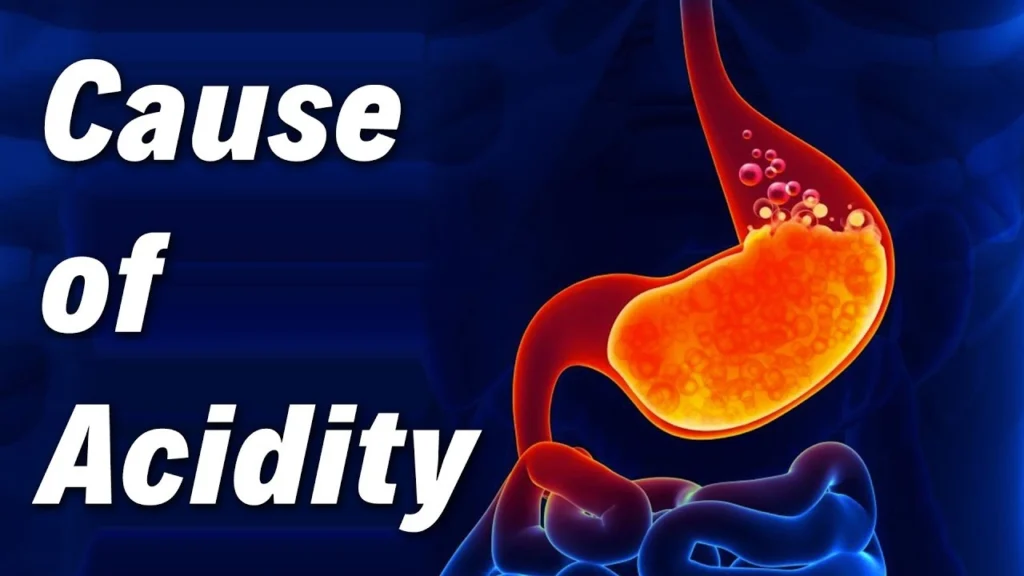Acidity Treatment: Causes, Symptoms, and Homeopathic Treatment Overview
Acidity treatment in homeopathy is all about bringing balance back to the digestive system. It seeks to tackle the root causes of discomfort, which can include stress, an unhealthy diet, or emotional issues, through holistic methods. The aim is to ease symptoms like heartburn and indigestion by boosting the body’s natural healing processes through acidity treatment.
At Gupta Homoeo Clinic, we have years of experience in acidity treatment and have successfully treated many cases of acidity, achieving a high success rate in providing long-lasting relief. Our skilled doctors focus on digestive health and create personalized treatment plans. Check out our page for more insights and learn how we can effectively help you with your acidity problems.
What is Acidity?
Acid reflux, also known as acidity, occurs when stomach acid comes back up into the esophagus, causing discomfort, sour taste in the mouth, or more severe symptoms. There are many possible causes of acid reflux, including diet, lifestyle factors, stress, and other medical conditions. Relief is attainable, and symptoms can be managed with appropriate care, lifestyle changes, and effective acidity treatment. Common symptoms include:
- Nausea
- Bloating
- Chest pain
- Belching
- Regurgitation of food and acid
- A sensation of a humming or ringing sound, often linked to stomach contractions
Types of acidity

Acidity treatment tre can be classified into various types, each with distinct causes and symptoms. Here are the primary categories:
- Gastric Acidity (Acid Reflux/GERD): This condition occurs when stomach acid flows back into the esophagus and can cause symptoms such as heartburn and regurgitation. With proper treatment and lifestyle changes, symptoms can be managed effectively and relief is possible.
- Hyperacidity: This is when the stomach produces too much acid, leading to nausea, bloating, nausea and a feeling of indigestion. Symptoms can be effectively treated and managed with changes in diet for as long as the symptoms can be managed. Relief can be achieved and comfort restored.
- Peptic Ulcer Disease: This condition develops when there is a balance between stomach acid factors and protective factors, creating ulcers in the lining of the stomach and duodenum. Healing can occur with gastric ulcer treatment and appropriate management of symptoms.
- Functional Dyspepsia: A long-standing condition that can cause bloating, fullness, discomfort in the upper abdomen, and other symptoms that may or may not have you scratching your head. The good news is that these symptoms can be minimized by management and changes to your lifestyle.
- Acidic Gastritis: An inflammation of the stomach lining due to excess acid, which can result in discomfort, nausea, and vomiting. Treatment and dietary changes can help relieve symptoms and improve quality of life.
- Lactic Acidosis: This condition happens with the buildup of lactic acid in the body and is usually associated with metabolic disorders. With acute care and timely treatment, this condition can be managed as effectively as possible and any symptoms can be controlled.
Symptoms of Acidity
The symptoms of acidity can differ based on the type and severity, but some common signs to look out for include:
- Heartburn: This is often described as a burning feeling in the chest, especially after meals.
- Acid reflux: You might experience a sour or bitter taste in your mouth when stomach acid flows back into the esophagus.
- Indigestion: This can manifest as a sense of fullness, bloating, and discomfort in the upper abdomen.
- Regurgitation: You may feel acid rising back up into your throat or mouth.
- Nausea: This is a general feeling of unease or the urge to vomit.
- Belching: This refers to frequent burping or the release of gas from the stomach.
- Chest Pain: Sometimes, this can be confused with heart-related issues, but it may occur due to acid irritating the esophagus.
- Sour Stomach: You might feel a sense of acidity or sourness in your stomach.
- Difficulty Swallowing: Known as dysphagia, this can happen when acid causes irritation or inflammation in the esophagus.
Causes of acidity
Acidity can arise from various factors, both related to lifestyle and physiological conditions. Here are some common causes:
- Overeating: Eating large meals or consuming food too quickly can overwhelm your digestive system, leading to an excess of acid.
- Spicy or Fatty Foods: Foods that are high in fat or spice can stimulate the production of stomach acid.
- Caffeine and Alcohol: Both of these substances can relax the lower esophageal sphincter, which allows stomach acid to flow back into the esophagus, resulting in acid reflux.
- Stress: Emotional stress or anxiety can disrupt digestion and increase acid production.
- Smoking: Smoking can weaken the lower esophageal sphincter, raising the likelihood of acid reflux and heartburn.
- Obesity: Carrying excess weight, particularly around the abdomen, can put pressure on the stomach, pushing acid into the esophagus.
- Pregnancy: Hormonal changes and the pressure from a growing uterus can lead to acid reflux in pregnant women.
- Medications: Some medications, like nonsteroidal anti-inflammatory drugs (NSAIDs) and certain blood pressure medications, can irritate the stomach lining and boost acid production.
- H. pylori Infection: An infection caused by bacteria in the stomach lining can result in ulcers, increasing acidity and causing discomfort.
- Gastroesophageal Reflux Disease (GERD): This chronic condition involves stomach acid frequently flowing back into the esophagus, leading to ongoing acidity problems.
- Delayed Stomach Emptying: Conditions such as gastroparesis, where the stomach takes longer to empty, can result in increased acid production and discomfort.

Do’s and Don’t for acidity
Do’s:
- Eat smaller, more frequent meals – Eating smaller, more frequent meals can help avoid overwhelming your stomach with large amounts of food.
- Stay hydrated – Make sure to drink enough water to support digestion and balance stomach acid.
- Elevate your head while sleeping – Elevating your head while you sleep can help reduce the chances of acid reflux at night.
- Include alkaline foods – Incorporating alkaline foods like bananas, melons, and oats can assist in neutralizing stomach acid.
- Maintain a healthy weight – Keeping a healthy weight is crucial as it lessens the pressure on your stomach, which can lower the risk of acid reflux.
- Practice stress management – Managing stress through practices like yoga or meditation can also help decrease acid production and support acidity treatment.
Don’ts:
- Avoid spicy and fatty foods – Steer clear of spicy and fatty foods, as they can increase acid production and make symptoms worse.
- Don’t lie down immediately after eating – Try not to lie down right after eating, since this can cause acid to flow back into your esophagus.
- Limit caffeine and alcohol – Reducing caffeine and alcohol intake can help prevent laxity in the lower esophageal sphincter, which may lower the chance of acid reflux.
- Avoid tight clothing – Avoid wearing tight clothing, like snug belts and waistbands, since they can put pressure on your stomach and worsen acid reflux.
- Don’t skip meals – Having regular meals can be beneficial, as missing meals could lead to excess acid production and discomfort.
- Avoid smoking – Refrain from smoking, as it can weaken the esophageal sphincter and heighten the risk of acid reflux.
Homeopathic Approach to Treating Acidity
Homeopathy provides a holistic approach to acidity treatment, focusing not just on physical symptoms but also addressing emotional factors. By balancing digestion and reducing symptoms, homeopathic remedies aim to restore healthy digestive function naturally.

Dr. Sachin Gupta
Homoeopathic Physician MD(Hom.)
Renowned homeopathic physician and skin specialist in Jaipur, dedicated to providing personalized, effective treatments.

Dr. Saveena Gupta
Homoeopathic Physician BHMS, DNHE
Highly regarded homeopathic doctor in Jaipur, specializing in women’s health and gynecological disorders.
Effective Homeopathic Remedies for Acidity
- Nux Vomica: Ideal for individuals with irritable stomachs, especially those experiencing nausea and indigestion due to stress or irritability.
- Lycopodium: Recommended for individuals suffering from increased acidity, indigestion, and a sense of fullness in the abdomen.
For long-term acidity issues, like chronic acidity, homeopathy offers sustained relief by addressing underlying causes. Our clinic offers best acidity treatment in homeopathy for acidity by ensuring effective and personalized treatment tailored to individual symptoms.
Note: Please do consult with your doctor first, before to take any medicine. The remedies mentioned over here are for the information only. We do not recommend to take any medicine without taking prior consultation. Homeopathy treatments for any diseases and treatment vary according to your body symptoms and structure.
Experience Relief with Homeopathy
If you are seeking a natural solution for acidity without side effects, the practitioners at our clinic can provide personalized acidity treatment to support healthy digestion as our homeopathy for acidity services are designed to address all issues, ensuring comprehensive care and long-term relief.
Disclaimer
The information provided on this page is for general informational purposes only and is not intended as medical advice. It is important to consult with a healthcare professional or licensed homeopath for an accurate diagnosis and personalized acidity treatment plan. The advice shared may not be suitable for everyone, and individual results may vary. Always follow the recommendations of your healthcare provider regarding the management and acidity treatment or any other health conditions.
FAQs
Q2. Can homeopathy provide a permanent cure for gas and acidity?
Answer – Homeopathy addresses the root causes of acidity, improves digestion, and provides lasting relief without any side effects, which can help prevent future occurrences of acidity.
Q3. Can I stop using antacids if I start homeopathy treatment?
Answer – As you find that homeopathy helps with your digestion, you might consider gradually cutting back on antacids, but be sure to do this under your doctor’s supervision. This way, you can move towards a more natural and sustainable approach to managing acidity.
Q4. What causes acidity?
Answer – Common reasons for experiencing acidity include overeating, consuming spicy or fatty foods, drinking caffeine and alcohol, as well as factors like stress, smoking, obesity, and certain medications. Additionally, conditions such as GERD and H. pylori infections can also play a role in increasing acidity.
Q5. Can homeopathy treat both bloating and indigestion along with acidity?
Answer – Homeopathic treatments can be beneficial for regulating digestion, alleviating bloating, and enhancing overall gut health, offering relief from both acidity and indigestion.